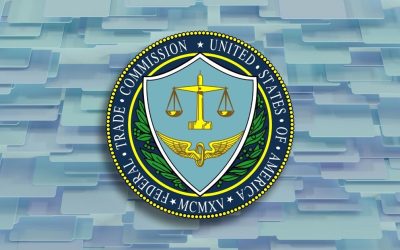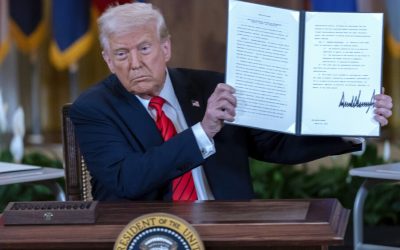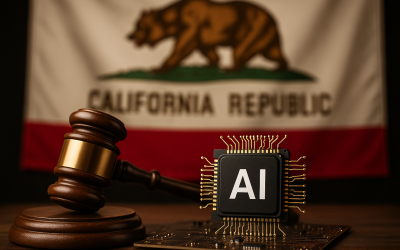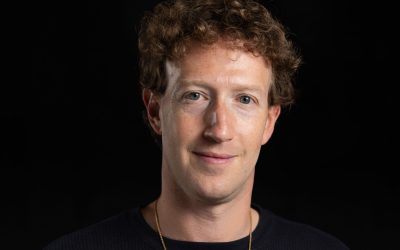
TECHNOLOGY
Latest Technology Posts
Misogyny and Abuse Are Thriving Online (Technology Policy Brief #162)
Two new reports document the alarming rise of online violence against women and girls. Sex trafficking, sexualized images, and stalking and exploitation online are nothing new. But Artificial Intelligence has exacerbated the problem. Deepfakes almost exclusively target women; in fact, some of the technology used to create them, developed by mostly male teams, only works on female forms.
FTC Escalates Enforcement Against Algorithmic Discrimination in Hiring and Credit Systems (Technology Policy Brief #162)
In 2025, the Federal Trade Commission (FTC) signaled that it would use existing federal law to address algorithmic discrimination in automated decision-making services regarding hiring, lending, and tenant screening. Some tech companies argue that the FTC is overreaching in the absence of explicit AI laws. The FTC’s push highlights how federal agencies are reshaping AI governance on a case-by-case basis rather than implementing broad new laws.
Trump’s AI Executive Order and the Federal–State Power Struggle (Technology Policy Brief #161)
The Federal-State battle over AI regulation has heated up after President Trump signed an executive order on Dec. 11 that blocks states from enforcing their own regulations on artificial intelligence. The order seeks to create a “single national framework” for AI. However state lawmakers, tech experts, and civil rights organizations are worried about what this means for the country. Many believe that federal regulations could slow down America’s competitiveness in the global AI race and will have serious implications for national security.
Rideshare Drivers Organize As Earnings Decline (Technology Policy Brief #160)
When Uber and Lyft came on the scene, taxi drivers protested vociferously. Now it’s the rideshare drivers protesting, as their earnings go down and the threat of autonomous vehicles looms. Organizing by rideshare drivers has had some success, but how effective hard-won changes will be remains to be seen. Workers scored an apparent victory in securing collective bargaining rights in California. But a similar law in Massachusetts has yet to yield results and the California law was a compromise that included enormous giveaways to the companies.
The Potential Harm Posed to Society Due to the Inaccuracies of AI (Technology Policy Brief #159)
The future of Artificial Intelligence (AI) is not fully determined, but it will continue to have a significant impact on our society and the way we live. The ways it currently impacts society are through improvements in efficiency, productivity, and accessibility. Self-driving cars relying on AI, AI-powered robots are used to provide aid and assistance in the healthcare system, and AI security systems are used to automate threat detection, among other examples. Although AI creates positive advantages and impacts, it also creates negative effects. The negative effects cover the environment, employment and other fields. These examples are often caused by products that use and incorporate AI, but what (potential) harm is created due to inaccuracies within the actual systems of AI?
California’s Landmark AI Regulations Don’t Go Far Enough (Technology Policy Brief #158)
California styles itself as a leader in AI regulation. Two landmark bills were signed by Governor Newsom this year over the usual industry objections. But the bills don’t go as far as safety advocates wanted, and don’t offer sufficient protections to young, vulnerable users.
Zuckerberg Keeps Coming For Your Children (Technology Policy Brief #157)
Complaints about META’s failure to protect children from the ills of social media continue to plague the company. Most recently, unauthorized images of children were used in ads for Meta’s Threads app, and a significant study of the company’s improvements in response to previous concerns criticized its efforts as largely ineffective.
Instead of a Break Up, Google Gets a Slap on the Wrist (Technology Policy Brief #156)
Google’s critics and competitors celebrated a court decision last year that found Google in violation of antitrust laws due to its monopolies over search services and online advertising. Smaller companies, increasingly dependent on search rankings and online ads, simply can’t compete
AI Dirties the Air and Drives Demands for Environmental Justice (Technology Policy Brief #155)
Artificial Intelligence is more ubiquitous in our daily lives than you may realize. It drives the constant stream of personalized ads, instant navigation directions when driving, voice assistants such as Siri and Alexa, shows up first in our Google searches, and much more. The massive data centers powering all that instant intelligence are less visible to those of us who use it the most. But they have become ubiquitous in lower-income communities of color, communities with the least access to high-speed home internet and some of the worst air pollution in the country.
Misogyny and Abuse Are Thriving Online (Technology Policy Brief #162)
Two new reports document the alarming rise of online violence against women and girls. Sex trafficking, sexualized images, and stalking and exploitation online are nothing new. But Artificial Intelligence has exacerbated the problem. Deepfakes almost exclusively target women; in fact, some of the technology used to create them, developed by mostly male teams, only works on female forms.
FTC Escalates Enforcement Against Algorithmic Discrimination in Hiring and Credit Systems (Technology Policy Brief #162)
In 2025, the Federal Trade Commission (FTC) signaled that it would use existing federal law to address algorithmic discrimination in automated decision-making services regarding hiring, lending, and tenant screening. Some tech companies argue that the FTC is overreaching in the absence of explicit AI laws. The FTC’s push highlights how federal agencies are reshaping AI governance on a case-by-case basis rather than implementing broad new laws.
Trump’s AI Executive Order and the Federal–State Power Struggle (Technology Policy Brief #161)
The Federal-State battle over AI regulation has heated up after President Trump signed an executive order on Dec. 11 that blocks states from enforcing their own regulations on artificial intelligence. The order seeks to create a “single national framework” for AI. However state lawmakers, tech experts, and civil rights organizations are worried about what this means for the country. Many believe that federal regulations could slow down America’s competitiveness in the global AI race and will have serious implications for national security.
Rideshare Drivers Organize As Earnings Decline (Technology Policy Brief #160)
When Uber and Lyft came on the scene, taxi drivers protested vociferously. Now it’s the rideshare drivers protesting, as their earnings go down and the threat of autonomous vehicles looms. Organizing by rideshare drivers has had some success, but how effective hard-won changes will be remains to be seen. Workers scored an apparent victory in securing collective bargaining rights in California. But a similar law in Massachusetts has yet to yield results and the California law was a compromise that included enormous giveaways to the companies.
The Potential Harm Posed to Society Due to the Inaccuracies of AI (Technology Policy Brief #159)
The future of Artificial Intelligence (AI) is not fully determined, but it will continue to have a significant impact on our society and the way we live. The ways it currently impacts society are through improvements in efficiency, productivity, and accessibility. Self-driving cars relying on AI, AI-powered robots are used to provide aid and assistance in the healthcare system, and AI security systems are used to automate threat detection, among other examples. Although AI creates positive advantages and impacts, it also creates negative effects. The negative effects cover the environment, employment and other fields. These examples are often caused by products that use and incorporate AI, but what (potential) harm is created due to inaccuracies within the actual systems of AI?
California’s Landmark AI Regulations Don’t Go Far Enough (Technology Policy Brief #158)
California styles itself as a leader in AI regulation. Two landmark bills were signed by Governor Newsom this year over the usual industry objections. But the bills don’t go as far as safety advocates wanted, and don’t offer sufficient protections to young, vulnerable users.
Zuckerberg Keeps Coming For Your Children (Technology Policy Brief #157)
Complaints about META’s failure to protect children from the ills of social media continue to plague the company. Most recently, unauthorized images of children were used in ads for Meta’s Threads app, and a significant study of the company’s improvements in response to previous concerns criticized its efforts as largely ineffective.
Instead of a Break Up, Google Gets a Slap on the Wrist (Technology Policy Brief #156)
Google’s critics and competitors celebrated a court decision last year that found Google in violation of antitrust laws due to its monopolies over search services and online advertising. Smaller companies, increasingly dependent on search rankings and online ads, simply can’t compete
AI Dirties the Air and Drives Demands for Environmental Justice (Technology Policy Brief #155)
Artificial Intelligence is more ubiquitous in our daily lives than you may realize. It drives the constant stream of personalized ads, instant navigation directions when driving, voice assistants such as Siri and Alexa, shows up first in our Google searches, and much more. The massive data centers powering all that instant intelligence are less visible to those of us who use it the most. But they have become ubiquitous in lower-income communities of color, communities with the least access to high-speed home internet and some of the worst air pollution in the country.
Trump FTC Deletes Click to Cancel Rule (Technology Policy Brief #154)
Few people are likely to miss the click-to-cancel rule. Consumers won’t, since they never had a chance to enjoy it, and businesses won’t because they hated it. The rule, which would have required all sorts of online businesses to make it easy for consumers to cancel unwanted subscriptions and memberships, was blocked by a federal appeals court just days before it was set to go into effect, a ruling that is unlikely to be appealed. Trump opposes consumer protections and is reshaping the FTC to carry forward his pro-business agenda.










